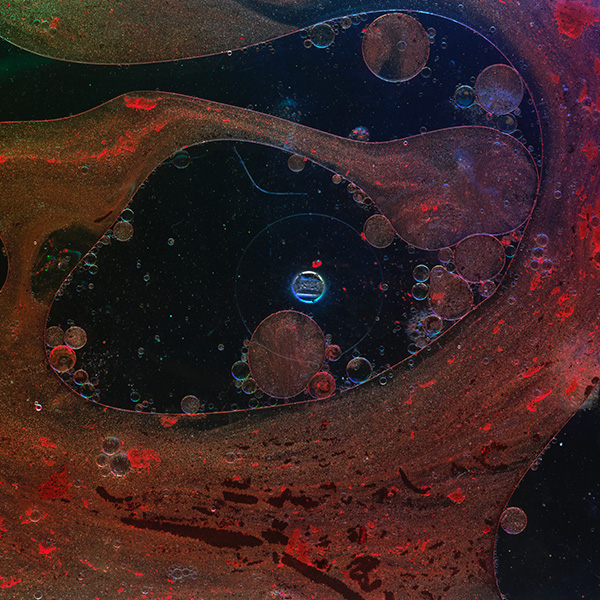Key Benefits
- Confirm an overactive thyroid and point toward the likely cause.
- Spot imbalance: Low TSH with high T4, free T4 index, and T3 uptake confirms hyperthyroidism.
- Clarify cause: TPO and Tg antibodies support autoimmune disease, often Graves or thyroiditis.
- Explain symptoms: Connect palpitations, anxiety, tremor, heat intolerance, and weight loss to hormone excess.
- Guide treatment: Use levels to choose and adjust antithyroid therapy, radioiodine, or surgery.
- Protect heart and bones: Flag atrial fibrillation risk and osteoporosis from untreated hyperthyroidism.
- Support fertility and pregnancy: Manage hormones and antibodies to reduce miscarriage and postpartum thyroiditis.
- Track trends: Monitor TSH and free T4 to titrate therapy and prevent hypothyroidism.
What are Hyperthyroidism
Hyperthyroidism biomarkers are blood signals that show how strongly the thyroid system is driving the body’s metabolism. The core markers capture three parts of the loop: the controller from the brain (thyroid-stimulating hormone, TSH), the hormones made by the gland (free thyroxine and triiodothyronine, free T4 and free T3), and, when relevant, the immune signals that point to cause—those that overstimulate the gland (TSH receptor antibodies, TRAb/TSI) or indicate autoimmune thyroid disease (thyroid peroxidase antibodies, TPOAb). Together they reveal whether the thyroid is overproducing hormone, how the pituitary is responding, and whether an autoimmune process is driving the problem. This matters because thyroid hormones act on nearly every tissue, tuning energy use, heart rhythm, temperature, and mood. By mapping the pattern across TSH, T4/T3, and antibodies, biomarker testing confirms hyperthyroidism, helps identify its cause—such as Graves disease or thyroiditis—and sets a baseline to guide therapy and monitor recovery. In short, these markers translate the body’s thyroid conversation into clear, actionable information.
Why are Hyperthyroidism biomarkers important?
Hyperthyroidism biomarkers reveal how strongly thyroid hormone is accelerating your body’s systems. Thyroid hormone is the metabolic throttle; when it’s high, the heart beats faster, the brain runs “hot,” the gut moves quickly, and bones turn over faster—shaping energy, mood, weight, heat tolerance, and rhythm control.
In steady health, TSH sits near the middle of its range, and Free T4 Index and Total T4 sit mid-range; T3 uptake is also mid-range. With true hyperthyroidism, the pituitary turns TSH down low or undetectable, while the Free T4 Index and Total T4 rise, and T3 uptake tends to rise due to saturated binding proteins. Autoimmune markers—TPO antibodies and thyroglobulin antibodies—are ideally negative or very low; higher titers point to autoimmune thyroid disease, commonly accompanying Graves or thyroiditis. Women are affected more often; during early pregnancy, TSH can be naturally lower, so a high Free T4 Index carries more weight. Children may show restlessness, poor weight gain, and rapid growth.
When values drift low, patterns matter. A low TSH with normal thyroid hormones (subclinical hyperthyroidism) can bring subtle palpitations, anxiety, and heat intolerance; risks concentrate in older adults (atrial fibrillation) and postmenopausal women (bone loss). Low antibody levels suggest a non-autoimmune cause, but symptoms stem from hormone excess regardless. If Free T4 Index or Total T4 return toward the middle, hyperthyroid effects ease; falling below range points away from hyperthyroidism and toward hypothyroid features.
Big picture: this panel integrates pituitary feedback, thyroid output, protein binding, and autoimmunity to explain symptoms and forecast outcomes—especially heart rhythm, bone density, mood, fertility, and pregnancy risks—guiding diagnosis and long‑term risk assessment.
What Insights Will I Get?
Thyroid hormones set cellular energy output, oxygen use, and sensitivity to adrenaline. When too high, systems speed up—heart rhythm, heat production, cognition, mood, and bone turnover—and reproduction and immunity can be affected. At Superpower, we test these biomarkers for hyperthyroidism: TSH (low), Free T4 Index (high), Total T4 (high), T3 Uptake (high), TPO antibodies, and thyroglobulin antibodies.
TSH is the pituitary signal that falls when circulating thyroid hormone is excessive. Free T4 Index estimates unbound thyroxine adjusted for binding proteins; Total T4 captures total thyroxine in blood. T3 Uptake is an indirect binding assay that rises when binding proteins are saturated, supporting a higher free hormone state. TPO and Tg antibodies indicate autoimmune thyroid disease affecting the gland.
Together, a low TSH with high Free T4 Index and/or Total T4 confirms hormonally driven acceleration of metabolism and cardiovascular load. The degree of elevation tracks with risk for palpitations, arrhythmia, weight loss, heat intolerance, bone loss, and neurocognitive changes. A high T3 Uptake supports true hormone excess rather than binding-protein artifacts. Positive TPO/Tg antibodies suggest an autoimmune process that can fluctuate, signaling potential instability over time.
Notes: Pregnancy and estrogen raise binding proteins, elevating Total T4 while the Free T4 Index and TSH better reflect status. Acute illness, iodine exposure, amiodarone, glucocorticoids, and biotin can distort results. Older age modifies risk profiles (notably for atrial fibrillation). Assay methods and lab reference ranges vary.







.avif)



.svg)





.svg)


.svg)


.svg)

.avif)
.svg)










.avif)
.avif)
.avif)


.avif)
.png)


